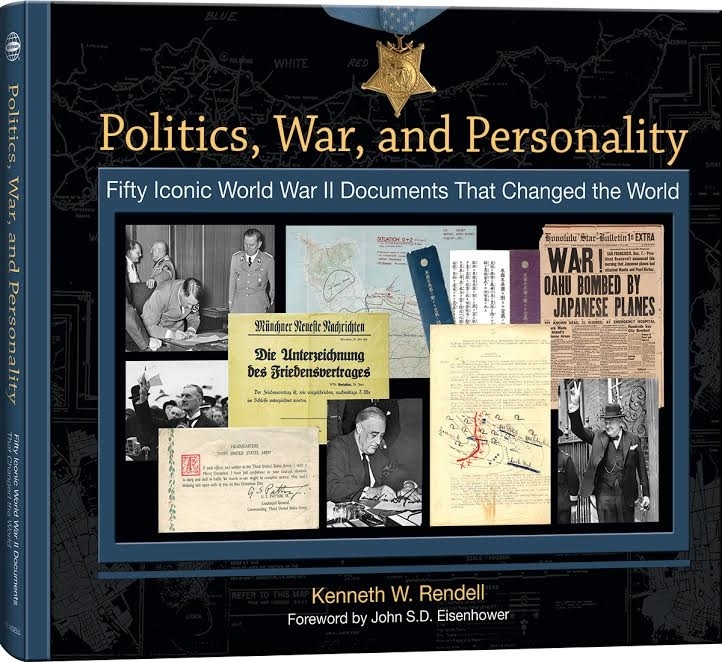1. First telegram sent during Japanese attack; December 7, 1941
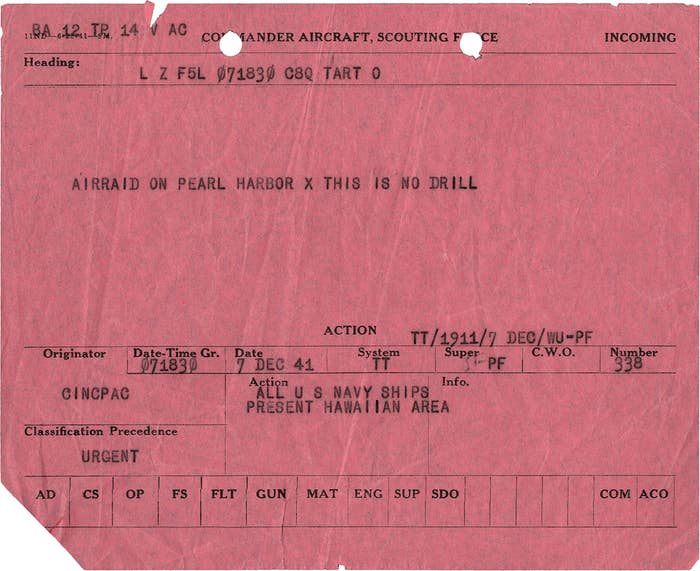
2. Handwritten letter from Commander-in-Chief Dwight Eisenhower to his wife; February 15, 1943

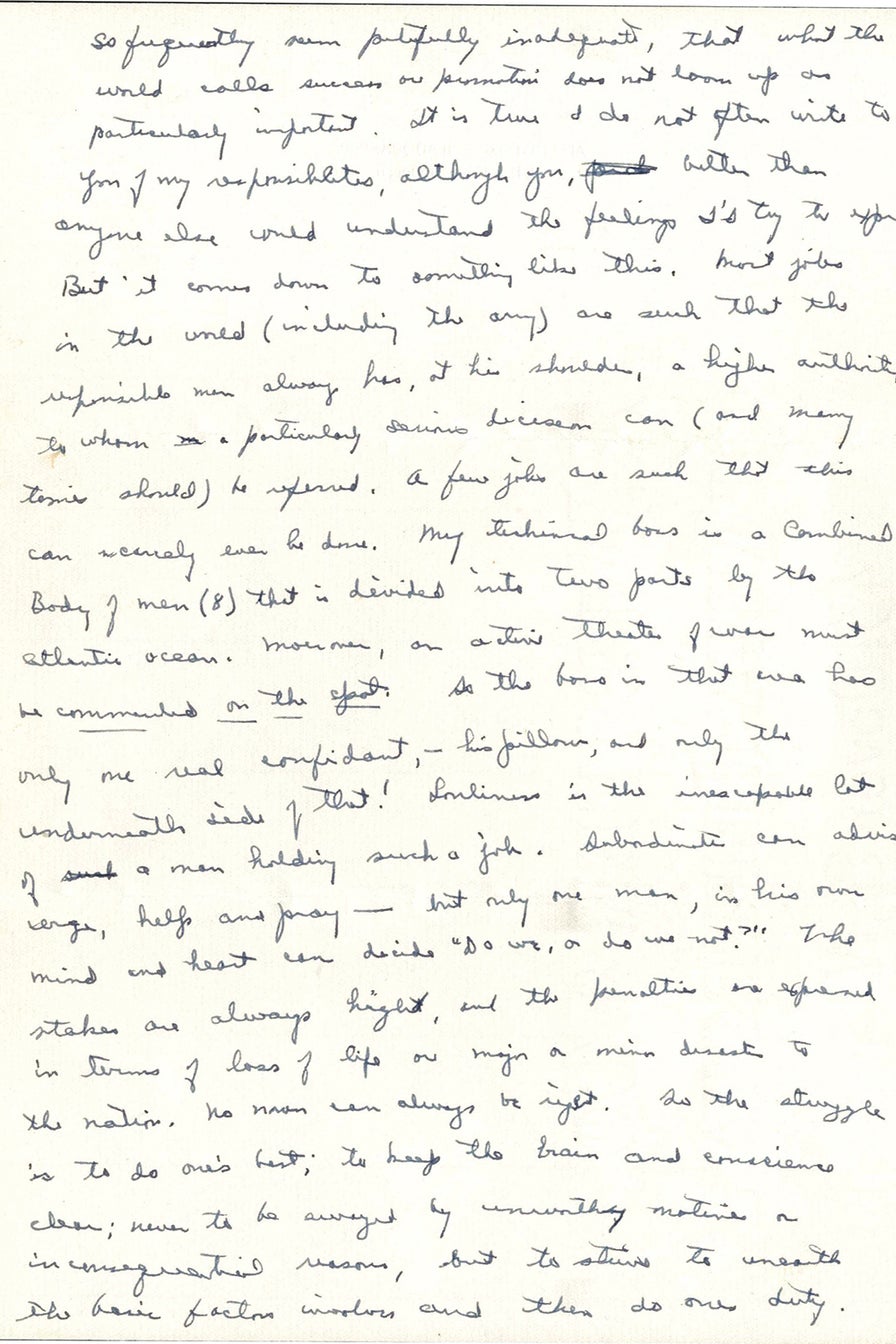
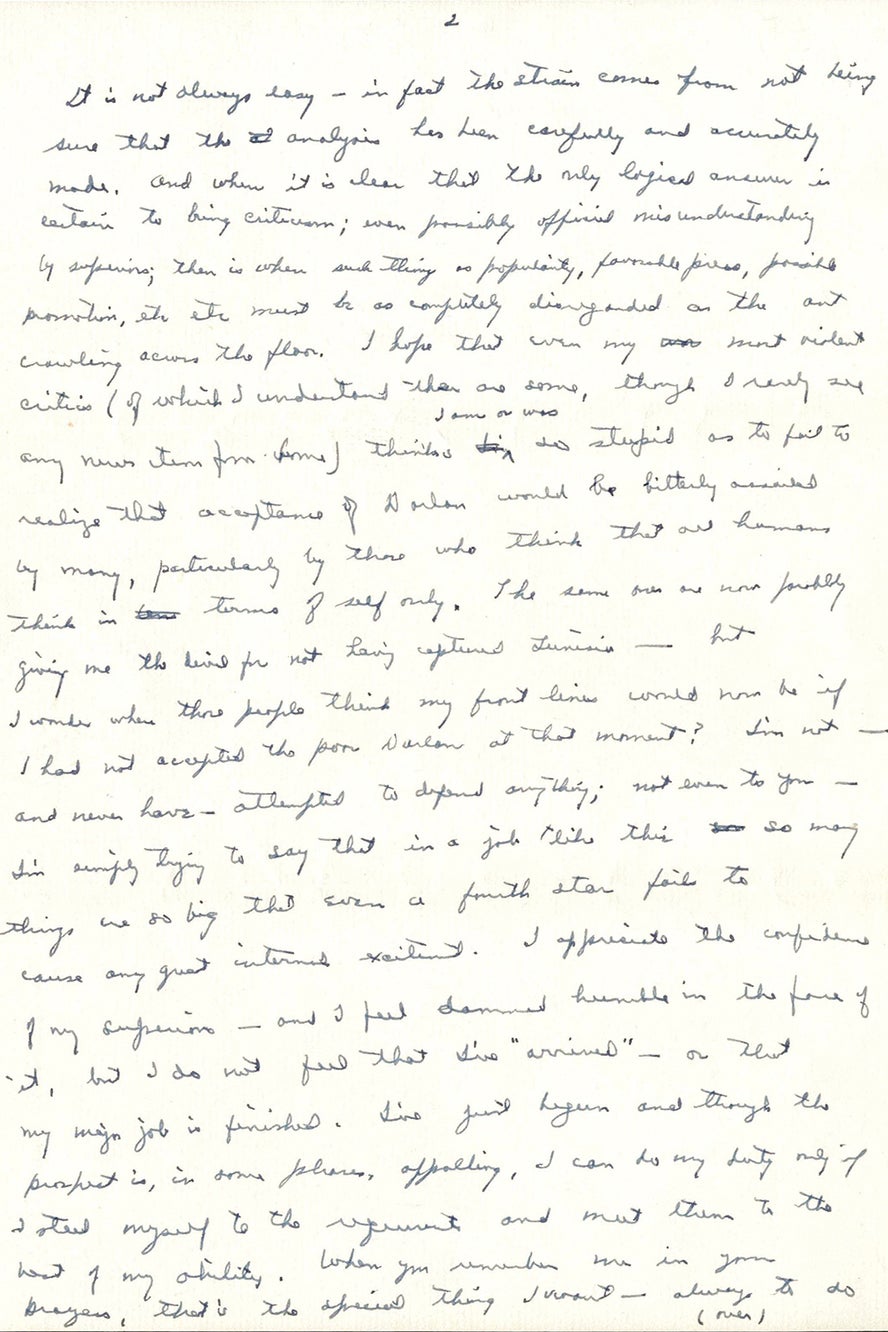

My dearest,...Your telegram of congratulations on my latest (and final possible) promotion came just before I left my headquarters. [...] Actually, I didn't have much feeling about it. I am human enough to want the official approval of my past action that such an unusual advancement implies — but anyone worthy of high command is so concerned with the enormity of the tasks, for which his own faculties so frequently seem pitifully inadequate, that what the world calls success or promotion does not loom up as particularly important. It is true I do not often write to you of my responsibilities, although you, better than anyone else would understand the feelings I'd try to express. But it comes down to something like this. Most jobs in the world ... are such that the responsible man always has, at his shoulders, a higher authority to whom a particularly serious decision can ... be referred. A few jobs are such that this can scarcely ever be done. My technical boss is a combined body of men (8) that is divided into two parts by the Atlantic Ocean. Moreover, an active theater of war must be commanded on the spot. So the boss in that one has only one real confidant— his pillow, and only the underneath side of that! Loneliness is the inescapable lot of a man holding such a job. Subordinates can advise, urge, help, and pray — but only man, in his own mind and heart, can decide "Do we, or do we not?" The stakes are always highest, and the penalties are expressed in terms of loss of life or major or minor disasters to the nation. No man can always be right. So the struggle is to do one's best; to keep the brain and conscience clear; never to be swayed by unworthy motives or inconsequential reasons, but to strive to unearth the basic factors involved and then do one's duty. It is not always easy — in fact that strain comes from not being sure that the analysis has been carefully and accurately made. And when it is clear that the only logical answer is certain to bring criticism; even possible official misunderstanding by superiors; then is when such things as popularity, favorable press, possible promotion, etc. etc., must be completely disregarded — I'm simply trying to say that in a job like this so many things are so big than even a fourth star fails to cause any great internal excitement. I appreciate the confidence of my superiors — and feel damn humble in the face of it, but I do not feel that my major job is finished. I've just begun and though the prospect is, in some phases, appalling, I can do my duty only if I steel myself to the requirements and meet them to the best of my ability. When you remember me in your prayers, that's the special thing I want — always to do my duty to the extreme limit of my ability.
3. Swedish protective passport for Jewish woman in Budapest, signed by Swedish diplomat and businessman Raoul Wallenberg; October 10, 1944
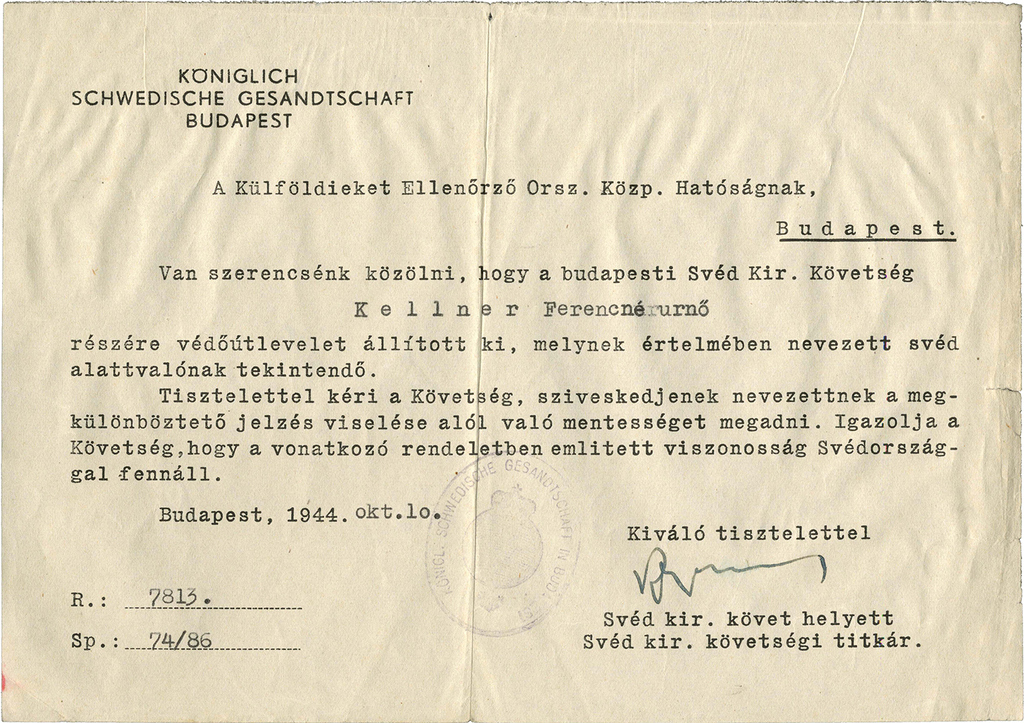
Mrs. Kellner is to be considered a Swedish citizen and is to be exempted from bearing the distinctive Jewish sign.
4. Letter from President Franklin Roosevelt five days before his death, writing of "complete victory over our enemies"; April 9, 1945
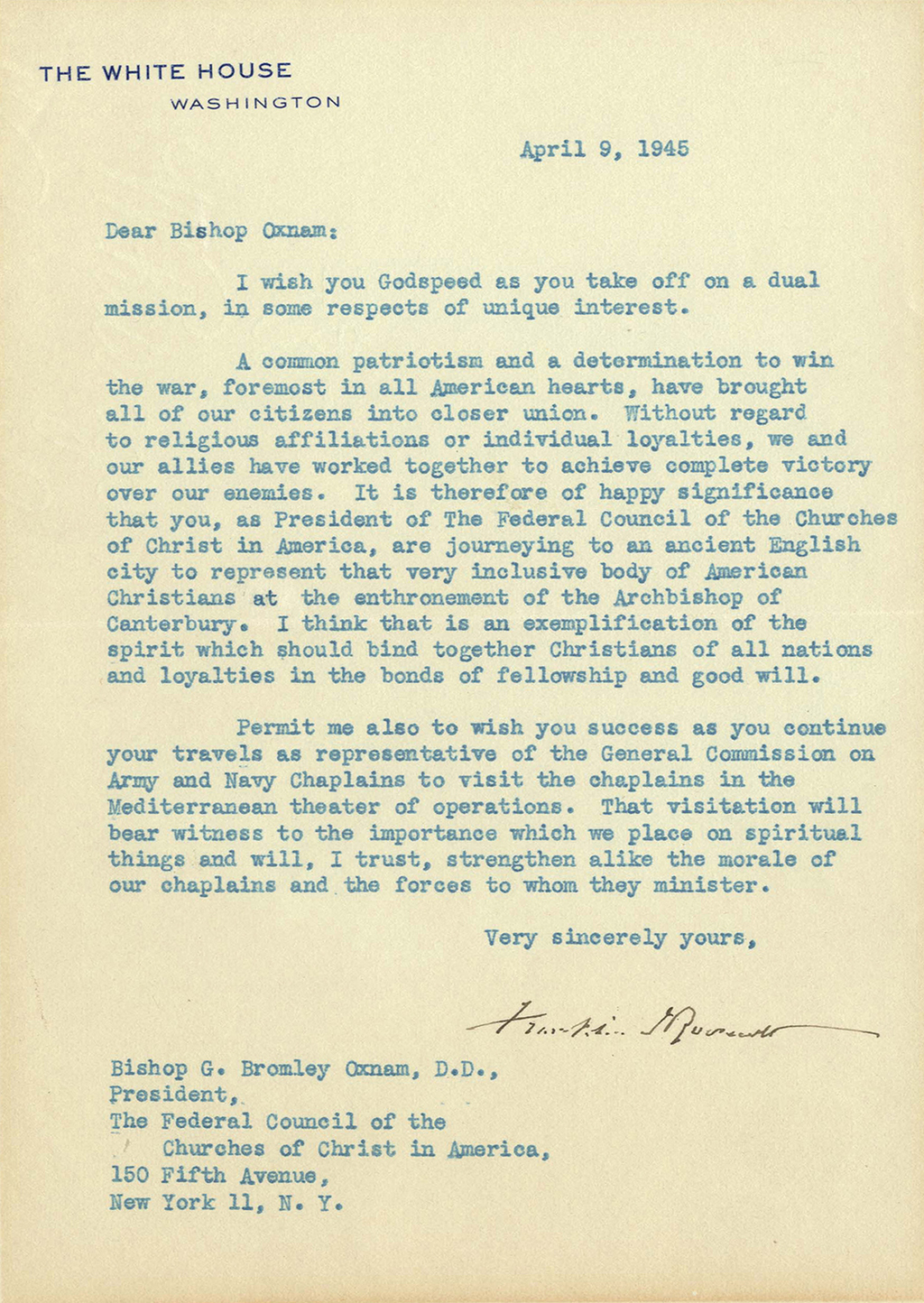
5. Hermann Goering's detention report from Nuremburg; June 22, 1945
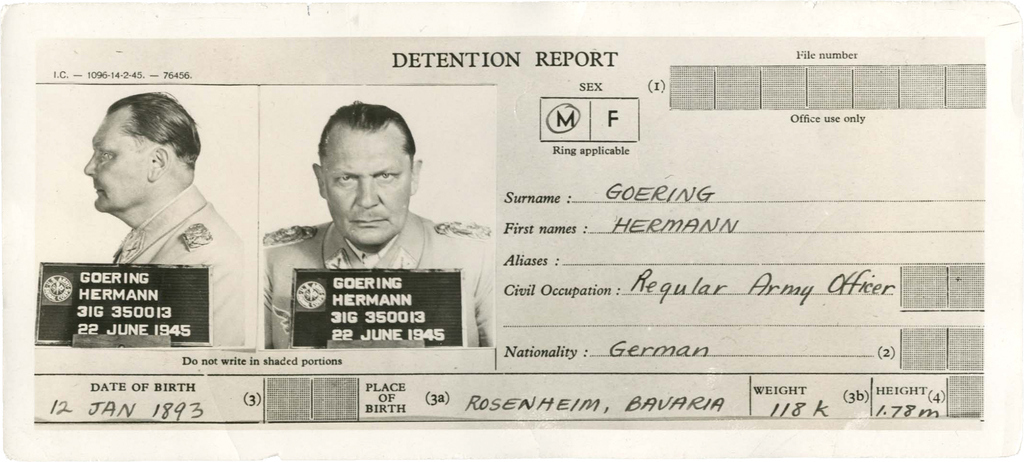
6. Note from Alice Frank-Stern, Anne Frank's paternal grandmother; September 1945
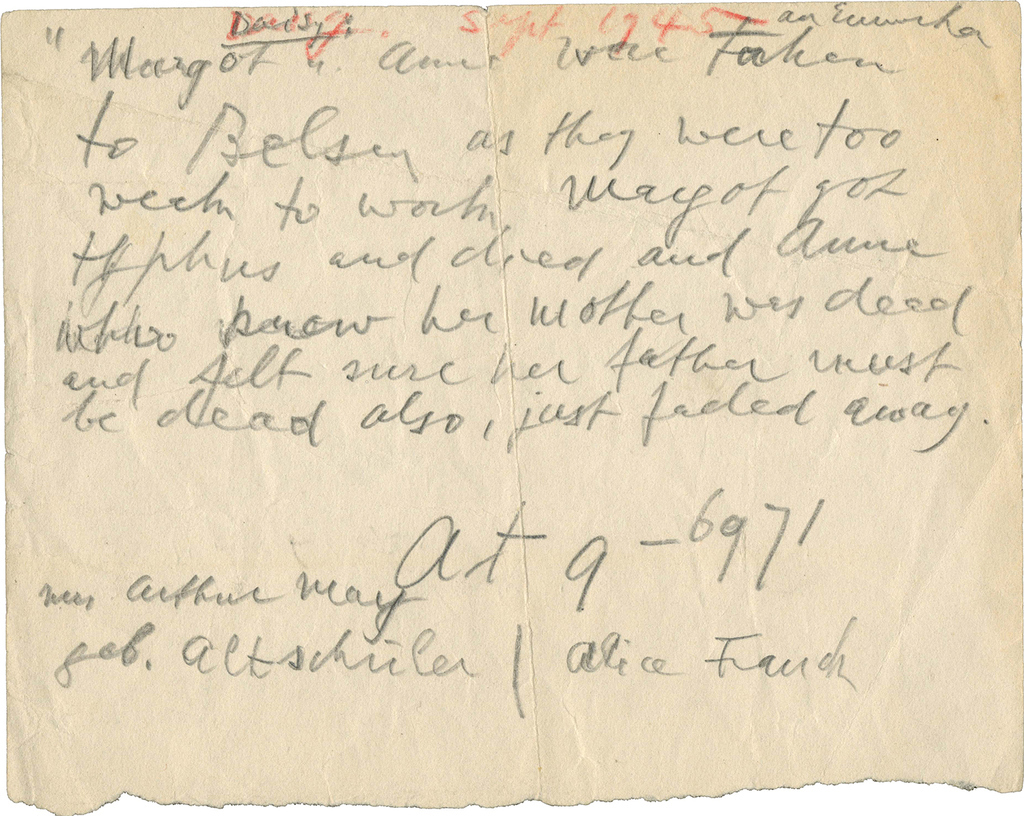
Margot [Anne's sister] and Anne were taken to Belsen as they were too weak to work. Margot got typhus and died and Anne who knew her mother was dead and felt sure her father must be dead also, just faded away.
7. Letter by President Harry Truman explaining the necessity of dropping the atomic bomb; November 19, 1957
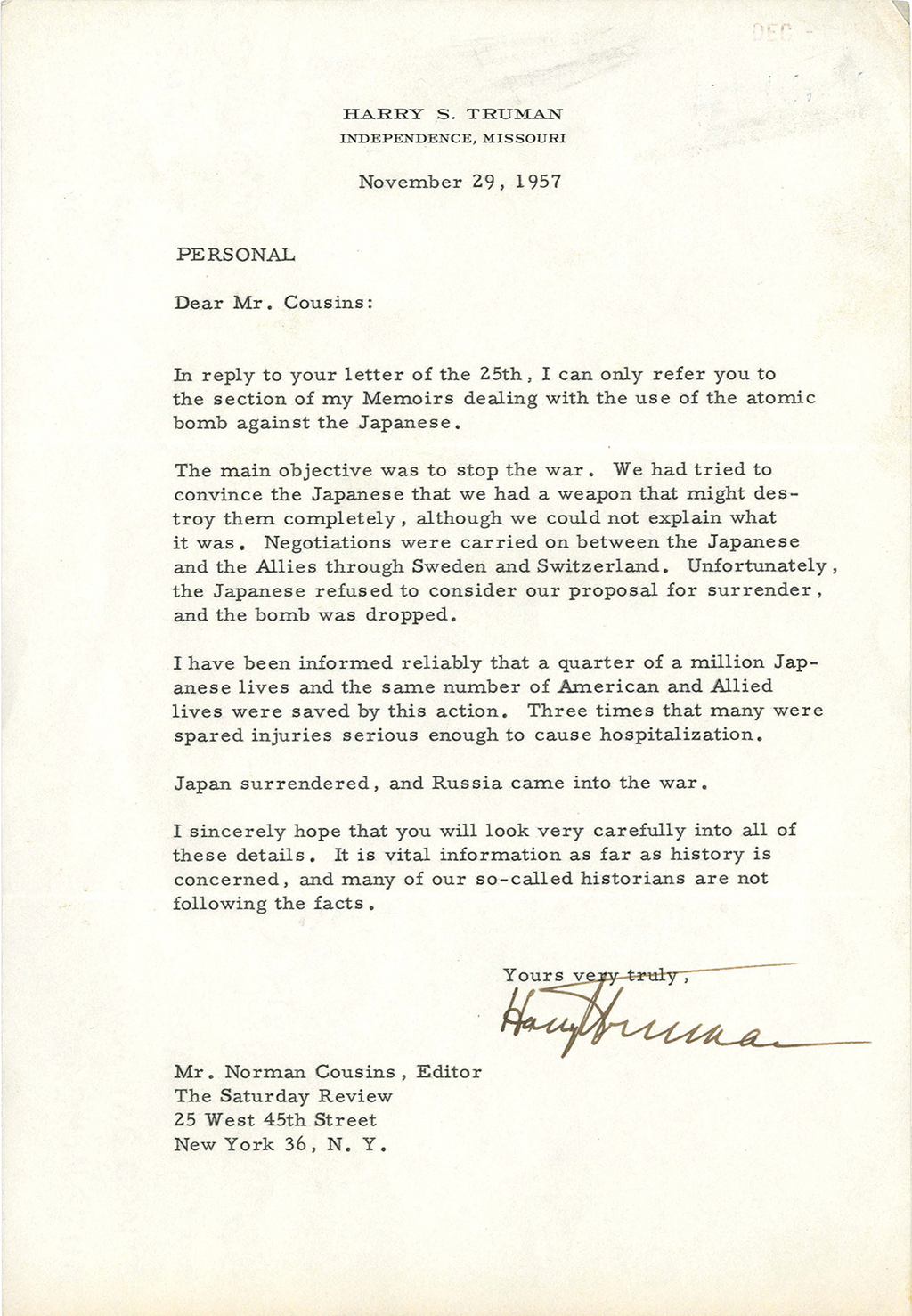
8. The original program of the Nazi Party, formulated by Adolf Hitler; February 20, 1920


The platform of the German Workers Party is a temporary platform. The leaders are against devising new goals once those ... have been attained for the sole purpose of enabling the Party to go on existing by artificially inciting discontent of the masses.1. We demand the unification of all Germans ... to form a Greater Germany.2. We demand ... nullification of the Peace Treaties of Versailles.3. We demand land to feed our people and for the settlements for our population...4. Only members of our people can be citizens of the State ... only German blood ... no Jew can be a member of the people.7. It is not possible to feed the entire populace, those belonging to foreign nations ... are to be expended from the Reich.8. Any further immigration of non-Germans is to be prevented. We demand that all non-Germans who immigrated to Germany since August 2, 1914, be forced to leave the Reich immediately.10. The activity of the individual may not violate the interests of the general public, but must be within the scope of the whole and to the benefit of all.11. Abolition of income without work or effort. BREAKING INTEREST SERVITUDE ... the personal accumulation of wealth through war must be deemed a crime against the people. Therefore we demand the confiscation of all war profits without exception.13. We demand the nationalization of all businesses (trusts) that have already gone public.14. We demand a share in the profits of large businesses.17. We demand ... the passage of a law for taking land for the welfare of the public without compensation. Abolition of land rental and the prevention of land speculation.18. Common criminals against the people ... to be penalized with death...20. The acquiring of the idea of the State must be attained at the beginning of comprehension through the schools (civics instruction).22. We demand the formation of a people's army.23. To enable the establishment of a German press, we demand that a) all editors-in-chief and staffers of newspapers published in German be members of the people, b) non-German newspapers require the express permission of the State for publication ... newspapers which act contrary to the common weal are to be banned. We demand laws against a tendency in art and literature which has a corrupting influence on the life of our people, and ... PUBLIC GOOD BEFORE SELF-INTEREST.
